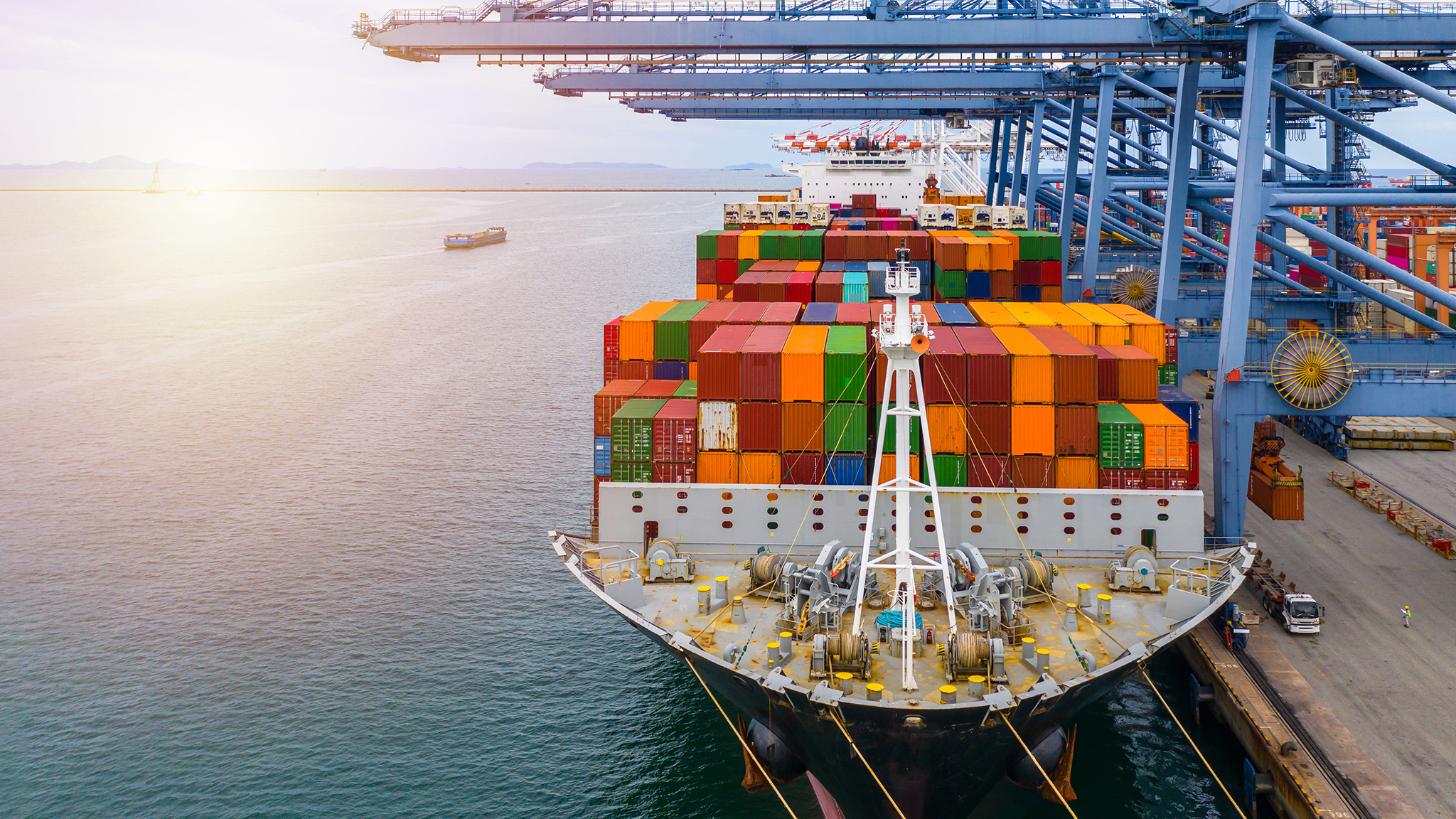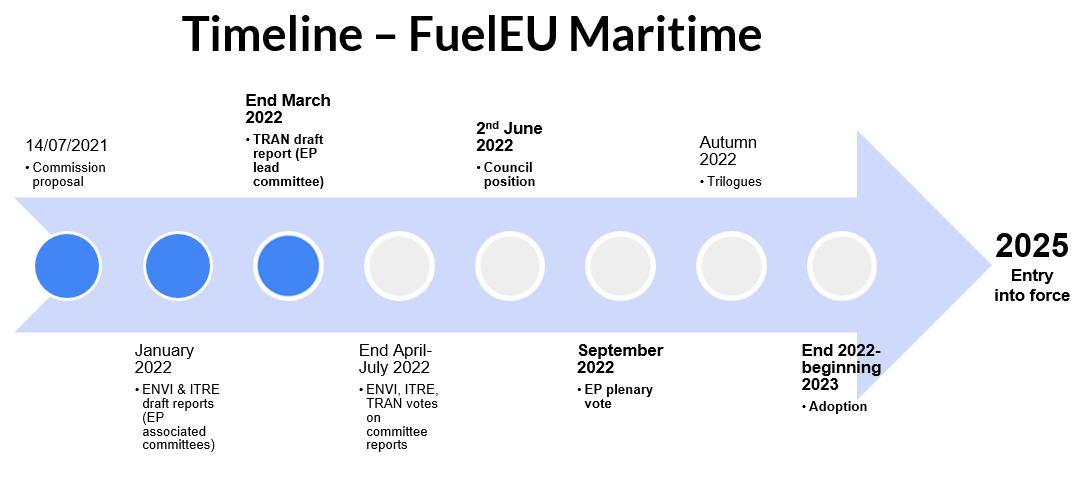
iStock photo: Container ship unloading containers at terminal
Background on Maritime Shipping Decarbonization by Aspen Shipping Decarbonization Initiative Team
Maritime shipping is the lifeblood of our global economy, but its reliance on fossil fuels leads to 1 billion tonnes of CO2 emissions per year, as much as a G7 country or all of the United States’ coal-fired power plants combined. Humanity faces a climate crisis, and there is increasing societal expectation that harder to abate sectors like maritime shipping also do their part, particularly as technological and economic pathways for their decarbonization become clearer. Therefore, in recent years, decarbonization of maritime shipping has gained increasing attention as a priority for public and private sector action.
Recent advancements in zero-carbon shipping fuels and technologies now make full industry decarbonization by 2050 not only realistic, but an imperative. However, regular market forces alone will not trigger this transition. Organized efforts by a group of ambitious first movers are needed now, combined with strong public policy support that will be mobilized in part by calls to action from leaders in the private sector.
The need for an industry-wide fuels transition
The existing international fossil-fuel powered fleet can potentially reduce emissions intensity up to 50% in the short term with efficiency measures such as slow steaming or wind-assist technology. These actions should be taken aggressively, but to achieve full decarbonization of the maritime sector, the industry must transition away from fossil-based bunker fuels toward new zero-carbon fuels.
Given the long lifespan of vessels, the transition must begin immediately to achieve decarbonization by 2050 and climate leaders across the supply chain will need to aim for decarbonization of their activities and supply chains well before 2050.
Furthermore, the decision to switch to new fuels must take into account the full lifecycle emissions and scalability of potential alternative fuels. These fuels and technologies must be deployed at quantities that can decarbonize the entire sector and become cost competitive with traditional fuels and propulsion systems while addressing safety, land use, and other societal concerns. Hydrogen-derived shipping fuels are attracting particular interest as future alternatives to fossil for their ability to achieve zero emissions from a lifecycle perspective, be produced at vast scale, and at potentially competitive prices, particularly if adequately supported by policy.
Actions needed to facilitate the transition
A broadscale transition to zero-carbon shipping fuels requires coordination among and investment by multiple actors across the maritime value chain, including carriers, third-party logistics providers, ship owners, ports, and fuel producers. Initiatives like the Global Maritime Forum’s Getting to Zero Coalition (a coZEV partner) are leading much needed cross-sectoral collaboration for target setting, pathway development, and zero-carbon fuels production and distribution, bunkering, regulation, and other key elements. Meanwhile, advocacy groups are lobbying international and regional/domestic regulators to establish strong policies to support this transition, in particular to bring zero-carbon fuels to price parity with fossil.
The missing demand signal
Despite growing efforts across the shipping value chain, the vitally important demand side has — until now — been mostly silent on the need for maritime decarbonization. Yet multinational cargo owners are the freight customers whose business underpins the work of carriers, freight forwarders, shipping fuel suppliers, and port operators.
Many leading cargo owners have ambitious corporate climate commitments. They are motivated to invest in real decarbonization of their supply chains and reduce the need to purchase out-of-sector offsets to meet their net zero goals (particularly where those emissions can actually become avoidable). By working together to stimulate a new marketplace for zero-carbon shipping, companies have a unique opportunity to become first movers, shape this new market, and facilitate rapid decarbonization of transoceanic container shipping in a way that will address their interests.
Climate-leading cargo owner companies, working collaboratively, can also become an important new voice for policy support that will accelerate maritime decarbonization and make these new zero-carbon fuels cost competitive. Cargo owner engagement at international and domestic/regional levels can elevate the importance of this issue and give policymakers the confidence to act ambitiously to meet decarbonization goals and establish an even playing field.


